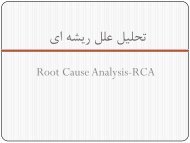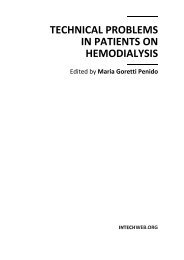UPDATED TOPICS IN MINIMALLY INVASIVE ABDOMINAL SURGERY
UPDATED TOPICS IN MINIMALLY INVASIVE ABDOMINAL SURGERY
UPDATED TOPICS IN MINIMALLY INVASIVE ABDOMINAL SURGERY
Create successful ePaper yourself
Turn your PDF publications into a flip-book with our unique Google optimized e-Paper software.
150<br />
Updated Topics in Minimally Invasive Abdominal Surgery<br />
appendicectomy are considerably smaller with less potential space and less interruption of<br />
blood supply around wound.<br />
Several explanations have been advanced for the reduction of ileus following laparoscopic<br />
appendicectomy. Firstly, decreased handling of the bowel during the procedure leads to less<br />
postoperative adhesion and such adhesions may be responsible for ileus. Secondly patients<br />
after laparoscopic appendicectomy had less opiate analgesics which inhibited bowel<br />
movements in the postoperative period. Thirdly earlier mobilisation after laparoscopic<br />
appendicectomy may also contribute to the reduction of ileus. Several meta-analysis have<br />
found that the incidence of intra-abdominal infections, intra-operative bleeding and urinary<br />
tract infections after laparoscopic appendicectomy was higher compared with open<br />
appendicectomy. It is not clear why intra-operative bleeding and urinary tract infections are<br />
higher after laparoscopic appendicectomy. With regards to intra-abdominal infections and<br />
abscess formation, there was suggestions that aggressive manipulation of the infected<br />
appendix and increased use of irrigation fluid might have increased the incidence of intraabdominal<br />
infections after laparoscopic appendicectomy. The majority of studies however<br />
have not separated the results for simple uncomplicated appendicitis. It does however<br />
appear that patients with complicated appendicitis managed by laparoscopic<br />
appendicectomy have a higher tendency for intra-abdominal abscess formation.<br />
The conversion rate from laparoscopic to open appendicectomy is around 10%. This is not<br />
surprising when considering the proportion of complicated appendicitis and the emergency<br />
setting of the procedure.<br />
Appendicectomy carries a fairly low risk of mortality. Consequently many studies do not<br />
report mortality rates or multi-variate analysis on these rates. Amongst studies that do<br />
report mortalities, the event rate ranges between 0.16 and 0.24.<br />
During pregnancy, laparoscopic appendectomy was found to be safe and effective and at<br />
least equivalent to open appendicectomy. Despite the raised intra-abdominal pressure<br />
associated with pneumoperitoneum, laparoscopic appendicectomy is associated with good<br />
maternal and fetal outcome. Further confirmatory studies are awaited before the safety of<br />
laparoscopic appendicectomy can be accepted.<br />
5.6 Long-term complications and implications<br />
Both the acute inflammatory condition of appendicitis and the surgical operation carried out<br />
to remove the appendix can potentially promote adhesion formation particularly around the<br />
fallopian tubes which may lead to tubal dysfunction in females of child bearing age. There is<br />
controversy surrounding the association between previous appendicectomy with<br />
subsequent infertility in females. Some reports found perforated appendicitis in childhood is<br />
not an appreciable cause of subsequent tubal infertility, while other reports found a high<br />
incidence of tubal infertility in women previously treated for appendicitis complicated by<br />
perforation, pelvic peritonitis or abscess. Three studies considered non-perforated<br />
appendicitis as well as perforated appendicitis on subsequent infertility and their result<br />
suggest that neither acute appendicitis nor perforation of the appendix was associated with<br />
a significant risk of infertility. Other studies, considered the question of the association<br />
between appendectomy and infertility. Some studies showed no association between a<br />
history of appendicectomy and subsequent infertility while others found a higher incidence<br />
of infertility in patients who have had a previous appendicectomy. One of these studies<br />
analysed fertility after removal of a normal appendix. This study found that women whose




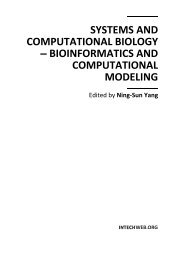



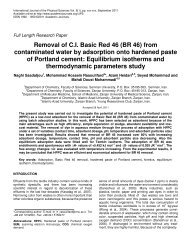

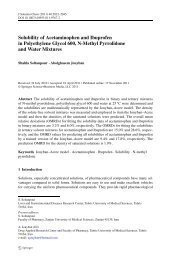



![focuspdca.ppt [Compatibility Mode]](https://img.yumpu.com/22859457/1/190x146/focuspdcappt-compatibility-mode.jpg?quality=85)
